10 Reasons You Shouldn’t Eat Bananas Every Day And 5 Reasons You Should

Bananas are a common fruit enjoyed by many around the world, known for their convenience and nutritional benefits. However, like many things, moderation is key. This article explores the reasons why consuming bananas daily might not be the best idea, while also highlighting the benefits they offer when eaten in moderation.
1. High in Natural Sugar
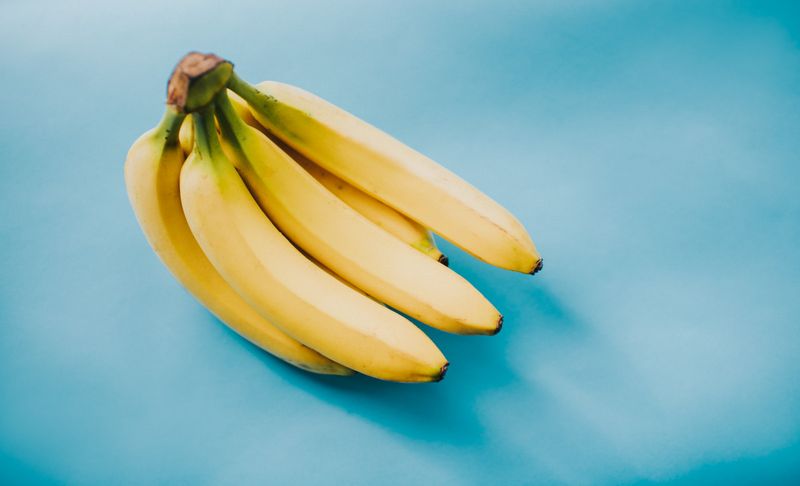
One medium banana contains about 14 grams of sugar. This natural sweetness can be misleading, as consuming bananas daily, especially without pairing them with protein or fat, may contribute to blood sugar spikes. Over time, these spikes can pose challenges in maintaining consistent energy levels. For individuals managing blood sugar, this can be a concern. Consider balancing banana intake with other foods to avoid unexpected energy crashes. A surprising fact: the riper the banana, the higher its sugar content. It’s an important reminder to be mindful of when and how you consume this tropical favorite.
2. Can Cause Blood Sugar Spikes
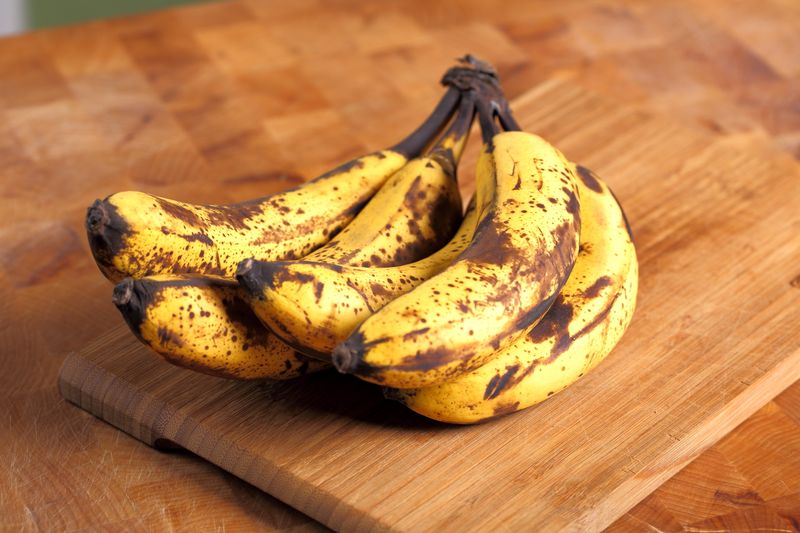
As bananas ripen, their starches convert into sugars, and very ripe bananas have a significant glycemic load. For those mindful of their blood sugar levels, consuming overripe bananas can lead to rapid spikes, sometimes resulting in energy highs followed by crashes. It’s essential to be aware of how ripe bananas are when choosing to eat them. A quirky fact: combining bananas with protein or healthy fats can slow sugar absorption, helping to stabilize blood sugar levels. This small adjustment can make a big difference in dietary balance.
3. Low in Protein and Fat
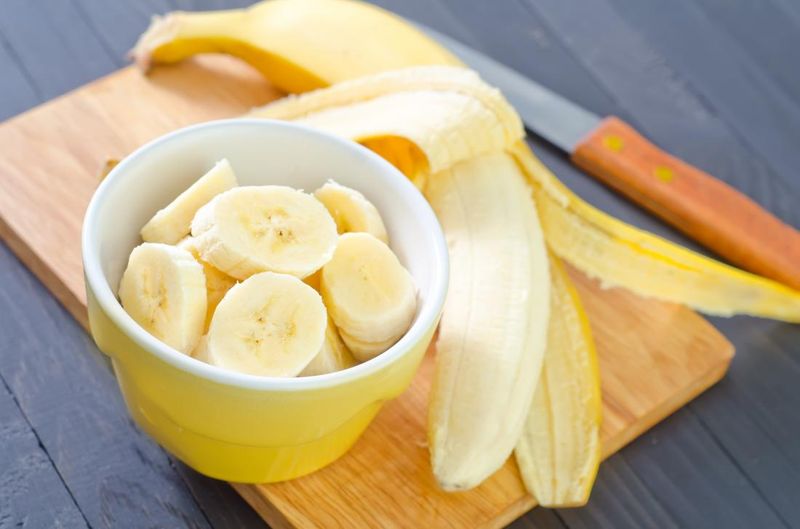
Bananas are celebrated for their carbohydrate content but fall short in protein and healthy fats, essential components for a well-rounded diet. While they provide quick energy, they don’t offer the sustained energy that a combination of nutrients can deliver. Those who include bananas as part of their meals might need to add protein or fat sources to achieve nutritional balance. Fun fact: pairing bananas with nuts or yogurt can create a more complete snack, ensuring you avoid energy dips. This simple tweak can enhance your dietary routine.
4. May Cause Bloating or Gas

Bananas contain fermentable carbohydrates known as FODMAPs, which can induce bloating or gas, especially in individuals with IBS or sensitive guts. While bananas are generally seen as gentle on the stomach, they might not be for everyone. It’s essential to listen to your body’s reactions when consuming them. Did you know? Not all bananas have the same effect; some may find that smaller bananas or different varieties reduce digestive discomfort. Adjusting the type or quantity can alleviate these issues and improve your banana-eating experience.
5. Can Be Constipating for Some
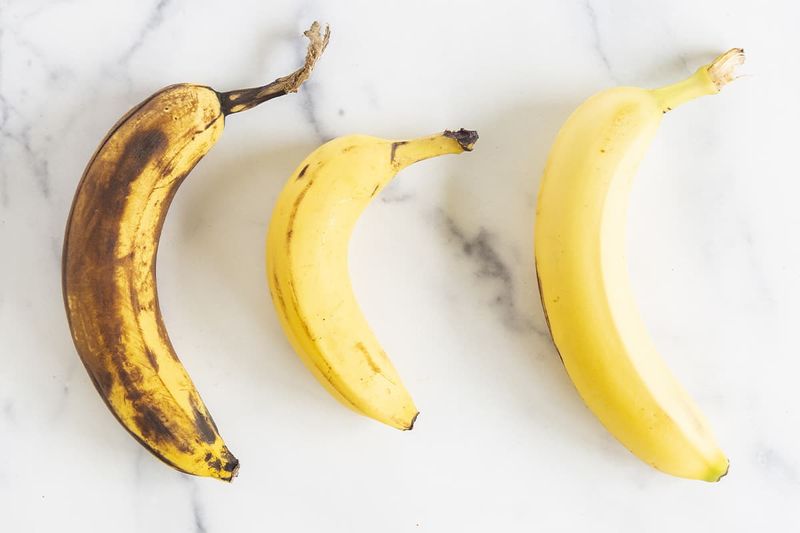
Though many find bananas aid digestion, others experience the opposite effect, particularly when consuming underripe bananas high in resistant starch. This can lead to constipation for some individuals. It’s a reminder to be mindful of the ripeness of bananas when incorporating them into your diet. Here’s an interesting fact: ripe bananas, with their softer texture, might actually help relieve constipation for some. This dual effect highlights the importance of personalizing your dietary habits to suit your unique digestive needs.
6. Can Contribute to Weight Gain
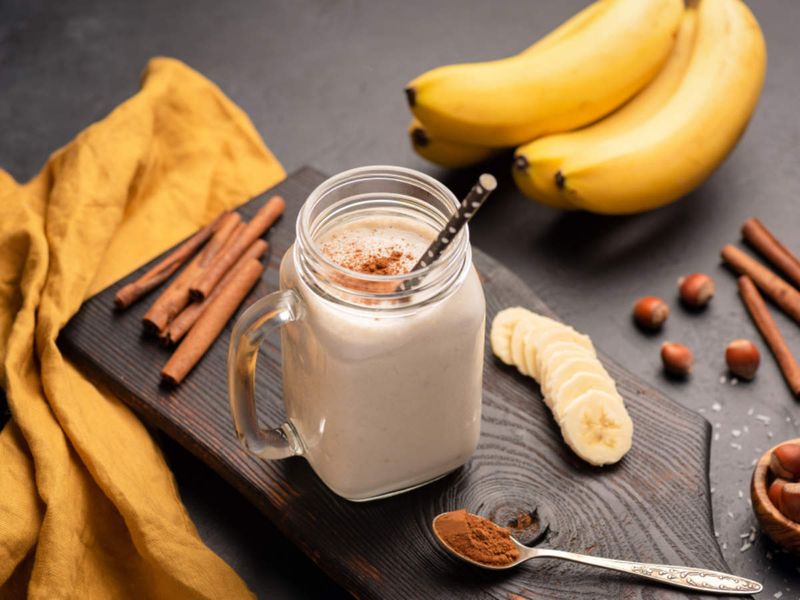
Bananas are calorie-dense and easy to overeat, especially in smoothies or as snacks. While they are nutritious, excessive consumption can lead to an increase in calorie intake over time, potentially contributing to weight gain. It’s crucial to enjoy them in moderation and balance with other fruits or snacks. A fun tidbit: blending bananas with low-calorie fruits can create a satisfying yet lighter smoothie option. This helps maintain a balanced diet without sacrificing enjoyment. Being mindful of portions can support healthy weight management.
7. Not Ideal for Low-Carb or Keto Diets
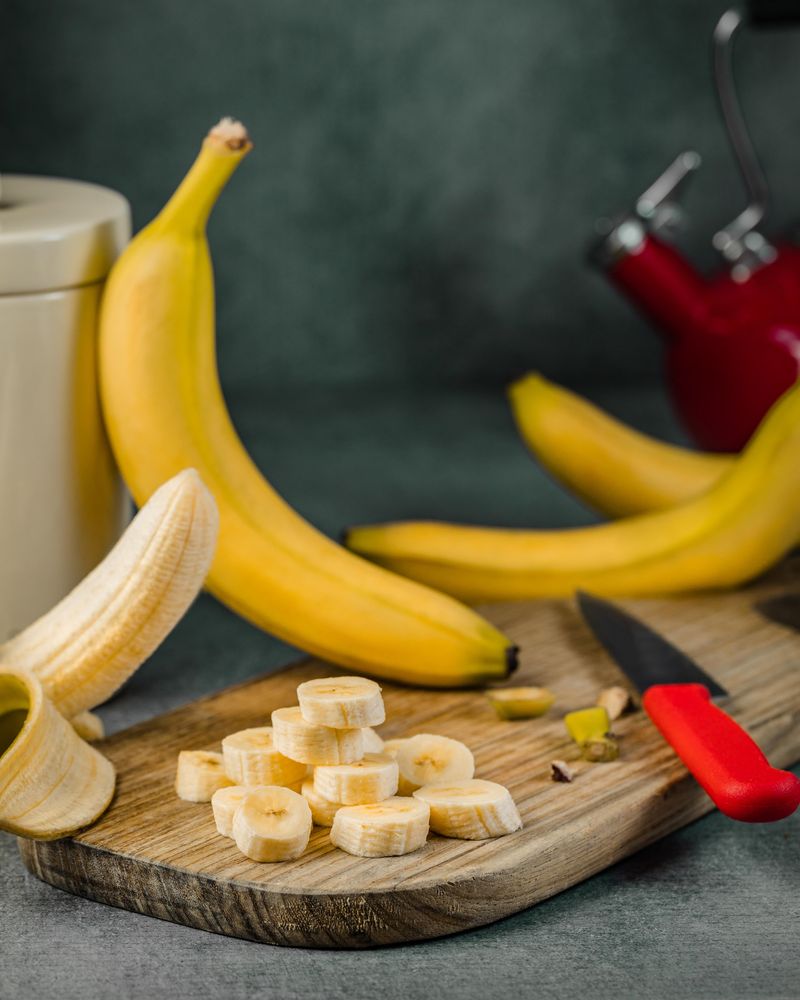
With approximately 27 grams of carbs per banana, they don’t fit well into strict low-carb or ketogenic dietary plans. Those following these diets might need to find alternatives to meet their carbohydrate restrictions. Despite this, bananas remain a favorite for many due to their natural sweetness and convenience. An intriguing fact: for those who miss bananas on a keto diet, incorporating small amounts of banana extract can add flavor without the carbs. It’s a creative way to enjoy the essence of bananas without breaking dietary rules.
8. Possible Latex-Fruit Allergy Connection

People with latex allergies may react to bananas due to similar proteins, leading to symptoms like itching or swelling. This lesser-known connection is important for those with sensitivities to be aware of. It’s fascinating that this cross-reactivity can extend to other fruits like avocado and kiwi. For individuals with known latex allergies, consulting with a healthcare provider can provide guidance on safe fruit consumption. This awareness allows for informed choices, ensuring that dietary habits align with individual health needs.
9. Nutrient Variety Gets Limited
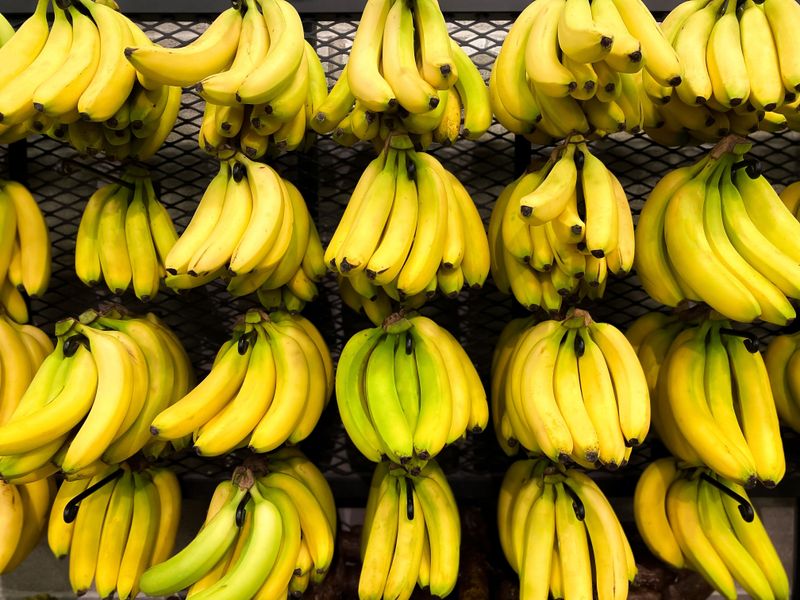
Relying on bananas daily may limit the intake of other fruits, each offering unique nutrients. While bananas are rich in potassium, they lack some vitamins and minerals found in other fruits like berries or citrus. Diversifying fruit consumption ensures a broader nutrient intake. Did you know? Regularly rotating fruits can prevent nutrient gaps and keep meals exciting. By embracing variety, you can enjoy a range of flavors and health benefits, making your diet as vibrant as the fruits themselves.
10. Overripe Bananas May Attract Mold or Fruit Flies
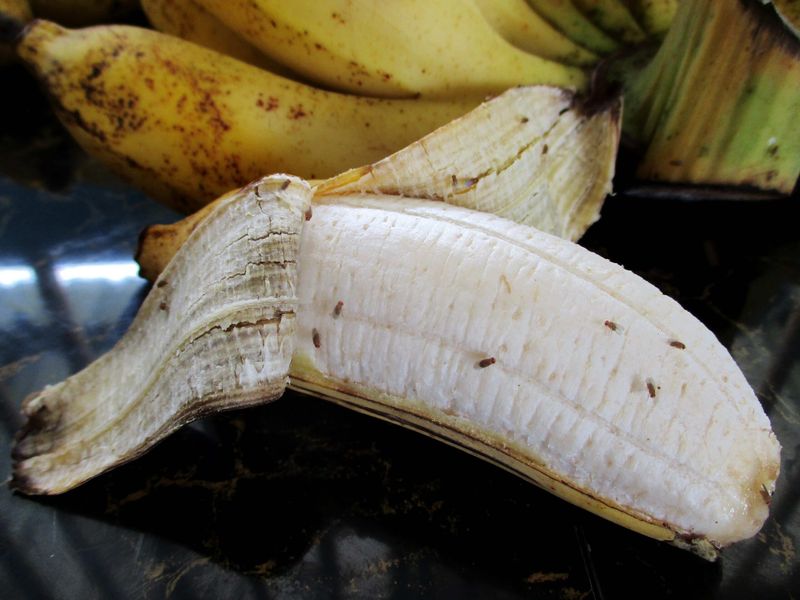
Though not a health issue when consumed, overripe bananas can attract mold and fruit flies, especially if left unattended on kitchen counters. This can be inconvenient and unappealing for those who enjoy having fresh fruits on display. An interesting tip: storing bananas in the fridge once they ripen can slow their spoilage and reduce fruit fly attraction. This simple practice keeps your kitchen tidy and your fruits fresh. Being mindful of banana storage can enhance your overall fruit-eating experience.
11. Excellent Source of Potassium
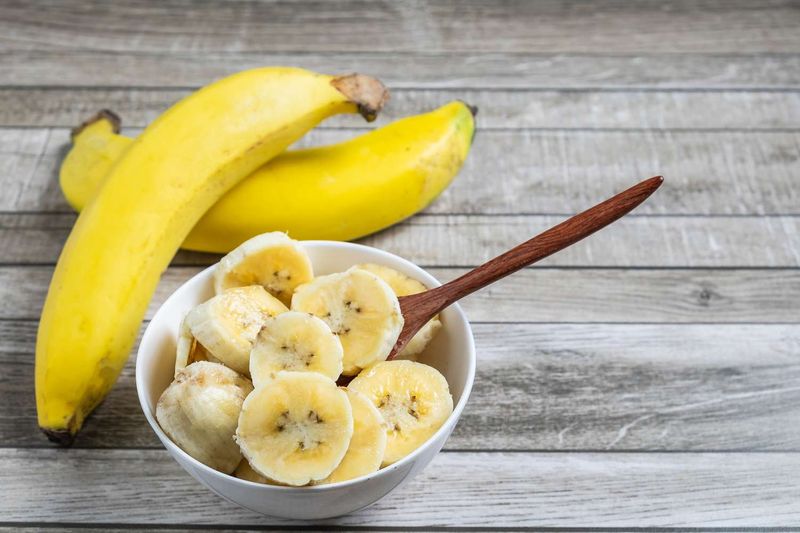
Bananas are renowned for their high potassium content, essential for managing blood pressure, fluid balance, and muscle function. This vital mineral supports numerous bodily functions, making bananas a popular choice for maintaining health. A lesser-known fact: other foods like spinach and sweet potatoes also contain significant potassium levels, offering alternatives for those seeking variety. Incorporating a range of potassium-rich foods can enhance dietary balance. Understanding these options allows for creative meal planning, ensuring you receive essential nutrients with every bite.
12. Great Pre- or Post-Workout Fuel

Bananas offer quick-digesting carbohydrates and natural electrolytes, making them ideal for pre- or post-workout consumption. They provide energy without processed sugars, aiding in recovery and performance enhancement. Athletes often choose bananas for their convenience and nutritional value. A fun fact: bananas are sometimes referred to as ‘nature’s energy bar,’ highlighting their suitability for fitness enthusiasts. Incorporating bananas into your workout routine can offer a natural boost, ensuring you stay energized and ready for physical challenges. They blend nutrition with practicality seamlessly.
13. Natural Antacid Effect
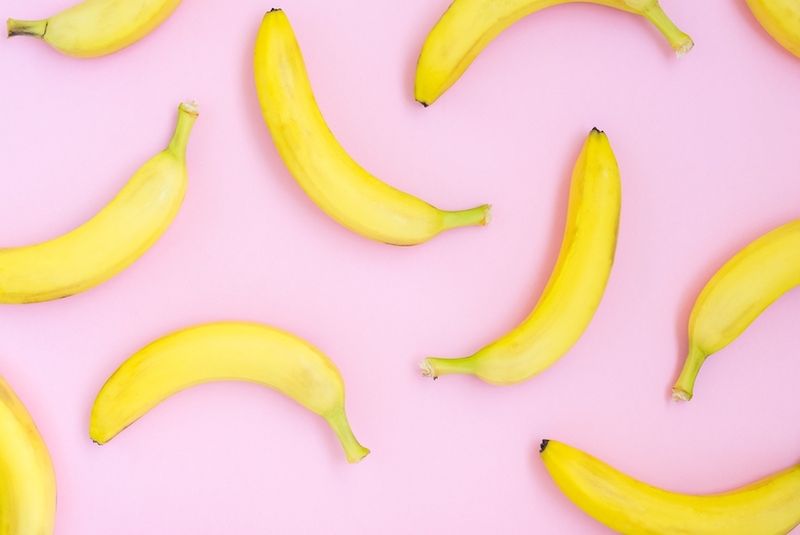
Bananas can coat the stomach lining and may reduce acid reflux, making them one of the more tummy-friendly fruits. This natural antacid effect provides comfort for those with sensitive stomachs. The gentle nature of bananas allows them to be incorporated easily into diets needing attention to acidity. A quirky tidbit: some people find that bananas help soothe heartburn, offering a tasty alternative to traditional antacids. Recognizing this potential benefit can guide dietary choices for improved digestive comfort.
14. Portable, Affordable, and Convenient
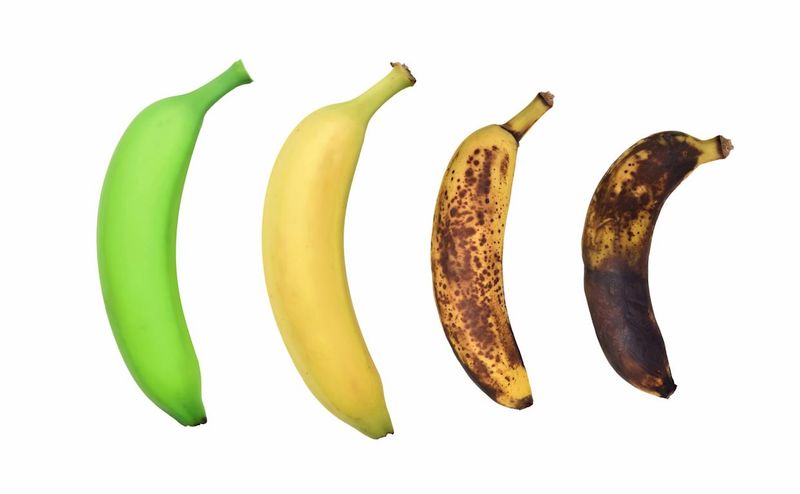
Bananas require no prep, packaging, or refrigeration, making them the perfect on-the-go snack. Their affordability and natural packaging contribute to their popularity as a convenient fruit choice. Whether traveling, at work, or packing lunches, bananas offer unmatched ease. An engaging fact: bananas are one of the most widely consumed fruits globally, thanks to their practicality. Their versatility makes them a staple in many households. Embracing the simplicity of bananas can enhance daily routines, ensuring nutrition is always within reach, and life is a little sweeter.
15. Source of Fiber
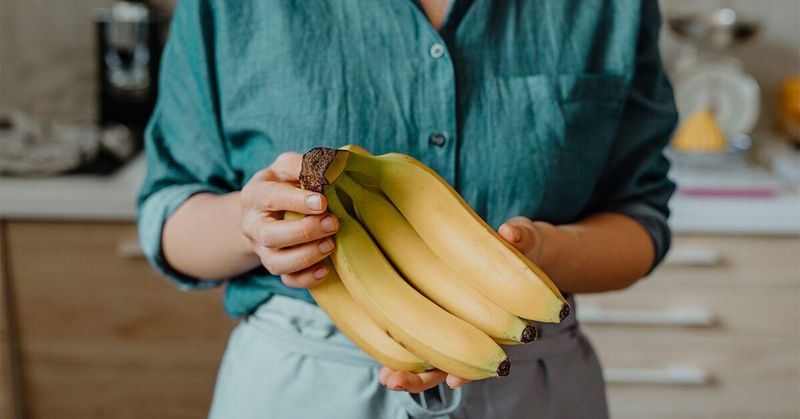
Bananas contain soluble fiber and resistant starch, particularly when not overly ripe, supporting gut health and promoting satiety. This dual benefit makes bananas a valuable addition to a balanced diet. The fiber content helps regulate digestion, while the resistant starch provides lasting fullness. Did you know? Consuming slightly green bananas can enhance these benefits, offering an easy way to increase fiber intake. By incorporating bananas into meals, you can enjoy their health advantages while also satisfying your taste buds.
